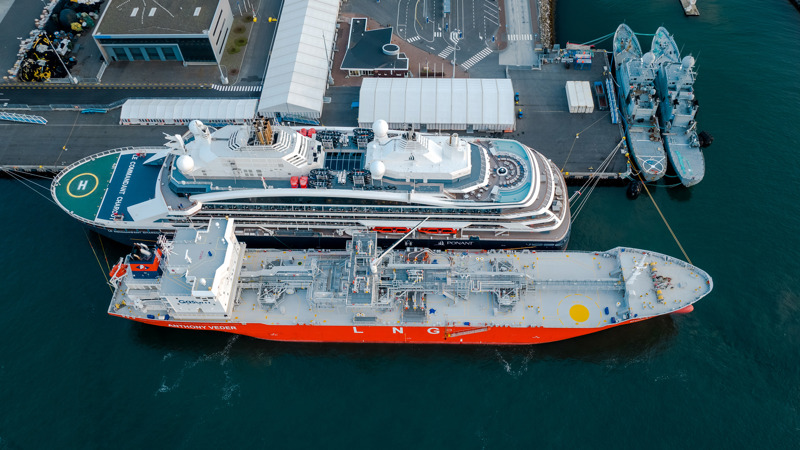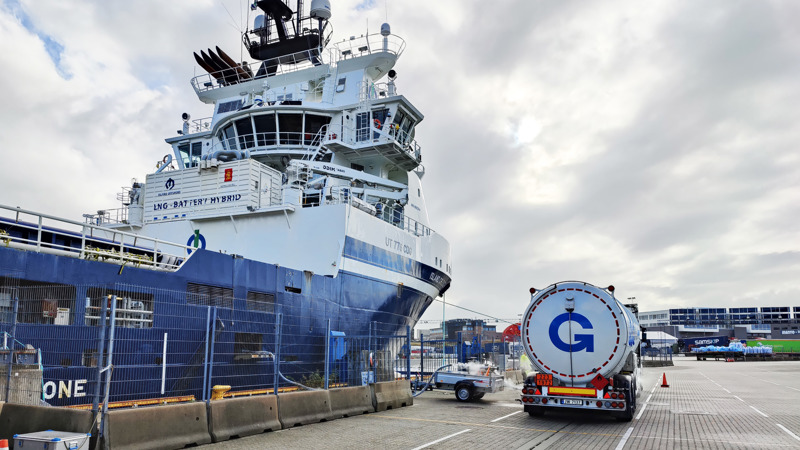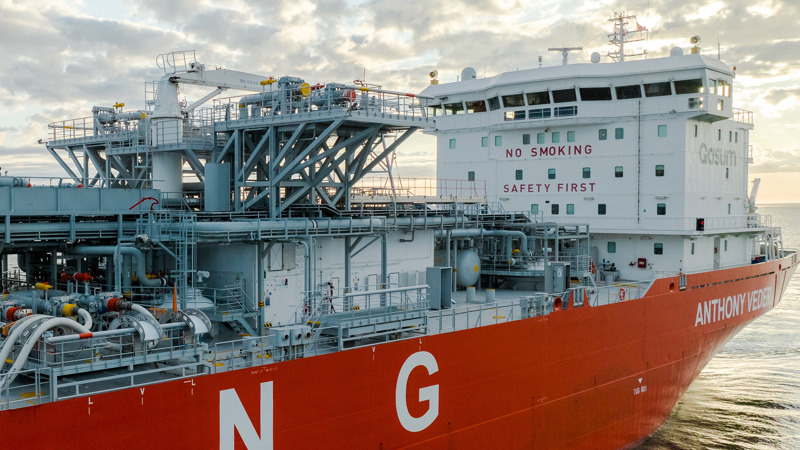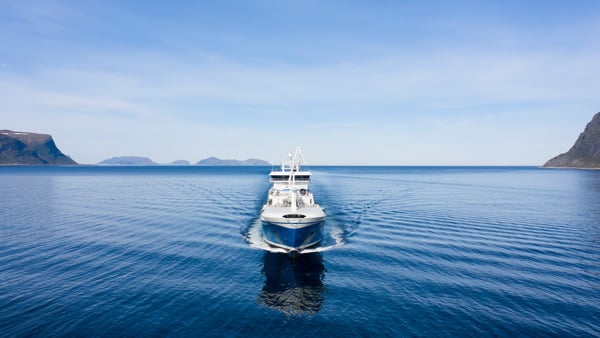Bunkering options
As a premium provider of LNG and LBG, Gasum is a partner for frontrunners in LNG propulsion who aim to optimise their efficiency and are constantly looking for better and more sustainable ways to operate.
Part of our wide variety of services and solutions is ship-to-ship bunkering, operated since 2017 with our LNG bunker vessels Coralius and Kairos. Having performed around a thousand of safe bunker operations both at sea and in port, Coralius together with Kairos provides a flexible and responsive service for operators in the maritime market.
Coralius has a capacity of about 5800 cbm (about 2450MT) and Kairos with 7500 cbm (about 3400MT) are ready to serve our long-term and spot customers in Europe.
Read more about our bunker vessels
Watch expert video on bunkering
Bunker desk
Maritime customers may inquire prices for LNG or LBG at:
bunkers@gasum.com
phone (Sweden): +46 73 511 59 73
Bunkering at sea and in ports
Bunkering LNG ship-to-ship can take place between two sea-going ships at anchorage or in port. Also, depending on the port restrictions, bunkering can be done efficiently at the same time as the vessel receiving LNG carries out simultaneous cargo operations.

In most ports, the LNG bunker vessel needs to have a license to operate, issued by local authorities. It is recommended to start the permit application well in advance of the ship-to-ship operation, as it normally involves several authorities.
Bunkering LNG ship-to-ship at sea does not usually require any special permit unless the operation takes place close to the shore. Typically, the bunkering operations take place in a position agreed with the Coast Guard within an anchorage area.

Truck-to-ship operations are conducted by Gasum at various European locations. These kinds of operations are flexible and can be made on-demand, subject to local authorities and permits. Hundreds of safe truck-to-ship operations are made by Gasum on an annual basis.
Gasum also offers Ex-pipe/Ex-installation deliveries at specific locations.
Safety first
To ensure a high safety standard, the crew on board both ships involved need to have the necessary training and instructions on how to handle the cryogenic LNG bunker equipment and procedures. After an initial compatibility check of the ships, a mooring study is done, and a checklist of all procedures is followed and ticked off by the respective crew. Utilizing digital tools such as FuelBoss, the operations can be optimized to save time.
When mooring and fendering arrangements are agreed upon, the LNG bunker vessel is positioned alongside the receiving ship and the final procedures are checked and ticked off. The hose is then connected, a leak test is performed, the water curtain installed, and the emergency shutdown systems are re-checked. After this the bunker operation may commence. After the operation is completed, the hose and equipment need to be purged before they are disconnected.

Transfer equipment
The LNG bunker ship needs to secure that all gas detection equipment is certified and in good condition. Both the bunker ship and the receiving vessel need to have installed efficient and safe emergency shutdown systems (ESD). The hoses are equipped with a drip-free quick coupling and a break away unit, which, in case of an emergency, breaks off without any spill.
Standards and regulations for LNG bunkering
The rules for LNG bunkering are constantly being developed by several organizations. Some of these are SIGTTO (Society of International Gas Tankers and Terminal Operators), OCIMF (Oil Companies International Marine Forum), IMO (International Maritime Organization), International Organization for Standardization (ISO), EN (CEN – European Committee for Standardization) and the NFPA (National Fire Protection Association).


Download our guide - Pioneering cleaner shipping
We have gathered some information for you in a guide about cleaner maritime transports. You will see what influences shipping to reduce emissions, including regulations, market demands and trends.
